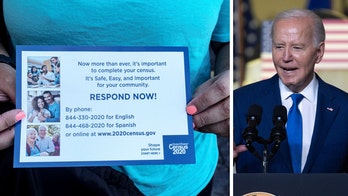The governor of the state with the worst prescription drug problem in the country promises, "we will stop this."
Florida Gov. Rick Scott and Attorney General Pam Bondi, both Republicans, are teaming up to do what the Obama administration has asked--help cure America's pain pill addiction.
An estimated seven people in Florida die in a prescription drug-related incident every day. Both Scott and Bondi admit Florida has a real problem. "It's way too easy [to get prescription drugs]. There are all of these pills mills across the United States--and a lot in Florida," Scott said on "America's News HQ" Saturday. "It is easy to go in, and if you pay, you can get what you want."
Florida's plan begins with new legislation and powers through to enforcement.
Just last week, Florida's House of Delegates passed a "pill mill bill," which would limit the number of doses of certain controlled substances that pharmacies can dispense per month. It also stiffen penalties for operating pill mills. The state's Senate is considering a similar bill.
"We have tough criminal penalties, really tough administrative penalties, and a dispensing ban. And, our prescription drug monitoring program will prevent people from doctor shopping. That is what people will do next," Bondi said of the bills.
Bondi supports Florida's drug monitoring program, an initiative she says will combine all the information from the state's pharmacies in one database. The goal, Bondi said, is to eliminate "doctor shopping" by allowing law enforcers to confidentially use this information to track drug purchases.
While on board with the new legislation, Scott does not feel the state should fund the drug monitoring program. Instead, the program will utilize federal grants, donations from private citizens and cash local law enforcers seize from drug busts.
As for getting law enforcement involved, Scott says, "We put together a strike force. We're going to work with our local sheriffs and police chiefs. We're going to provide money and investigative research to crack down on this."
Bondi also highlighted the state's participation in the DEA's second annual drug take-back program, which encourages prescription holders to turn in unused pills before they fall into the wrong hands.




